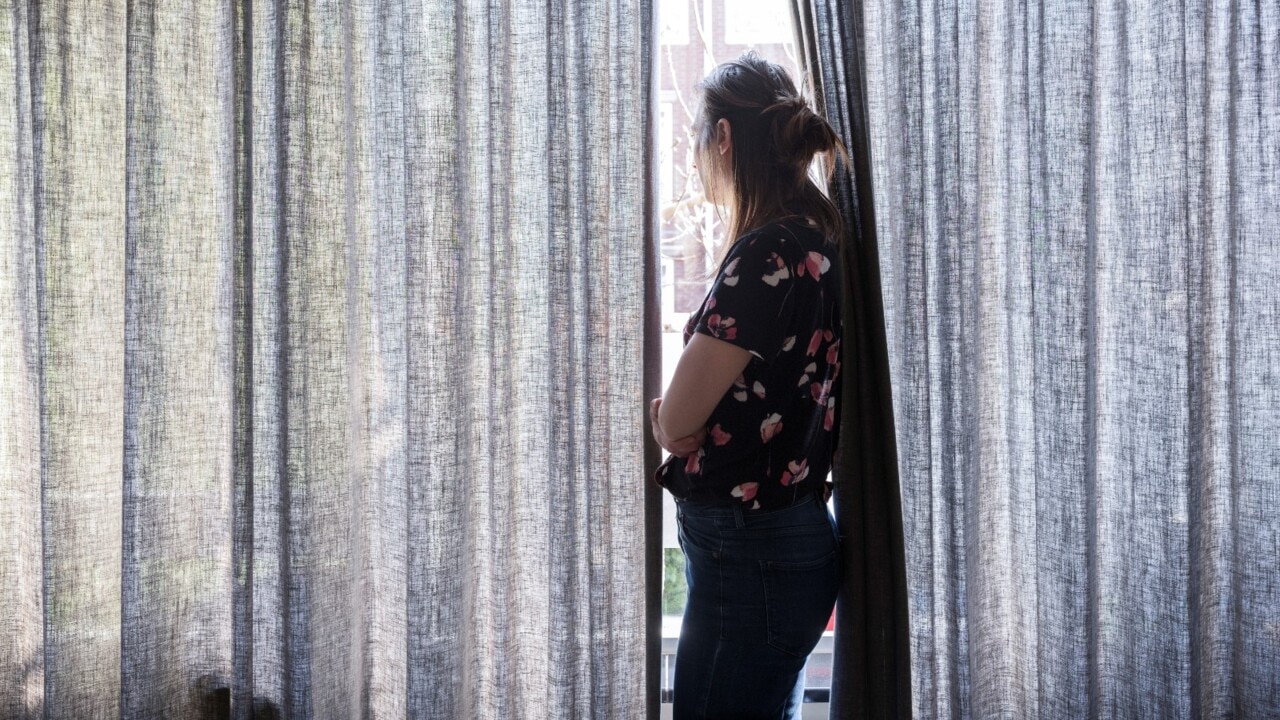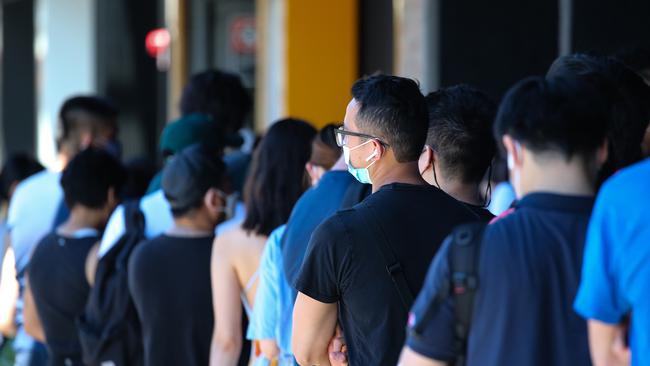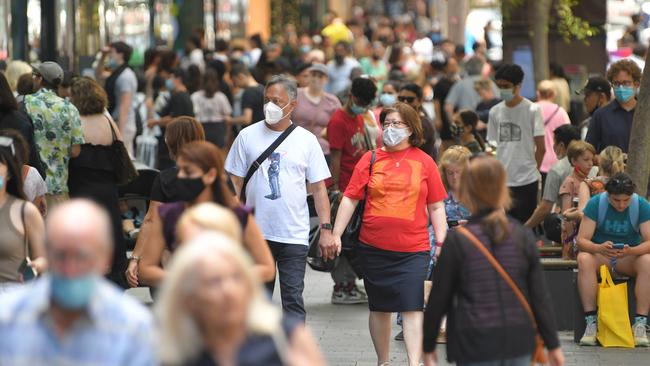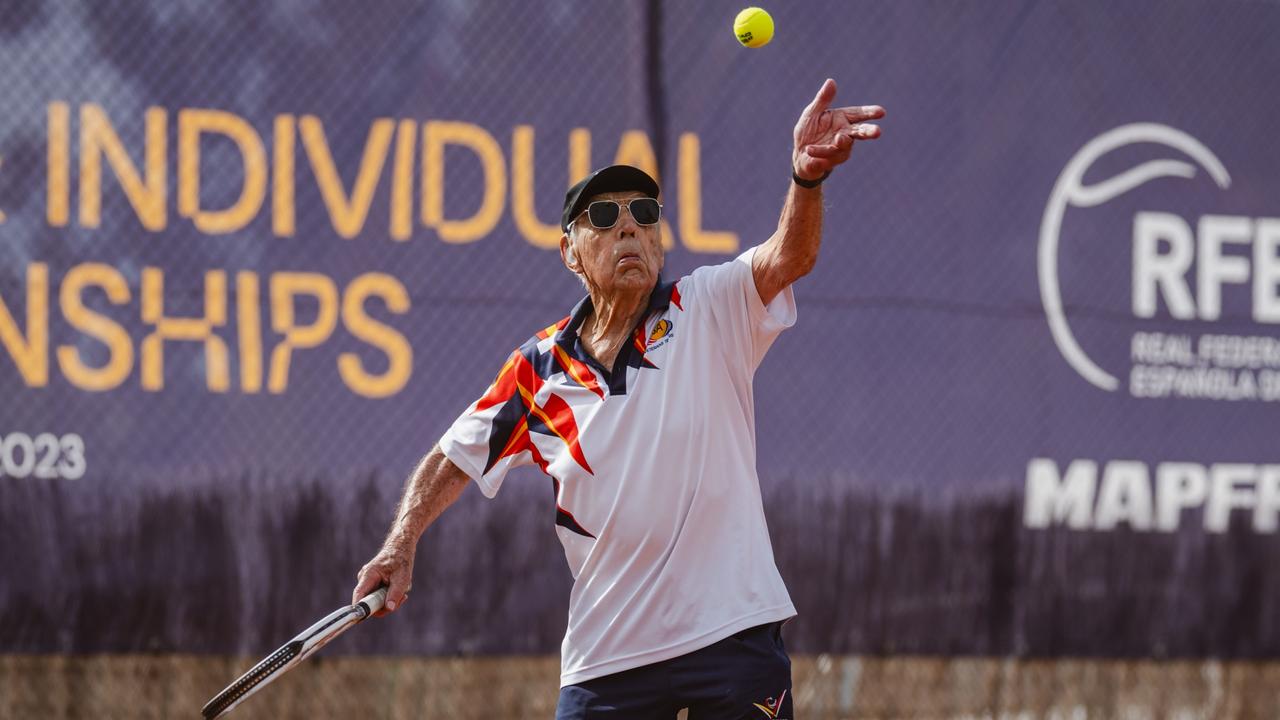The pandemic revealed there are two types of Aussies
The years-long Covid crisis has shown there are two camps Australians fall into – although it may not be as simple as it seems.

Health
Don't miss out on the headlines from Health. Followed categories will be added to My News.
OPINION
In the Year of our Lord 2021 it’s fair to say that Christmas could not be needed more.
For so much of this year and last we have been kept away from our loved ones, kept from the community events that bind us, kept even from the religious rites and celebrations that nourish our souls.
If the Covid crisis has taught us anything it is that humans are both heroically stoic and easily scared. We are both tough and timid. We accept what we need to do to keep our societies safe but we also know that life is an endless balancing act of risk and reward.
In some cases it is perhaps that these are two different types of people but for the most part it is probably just all of us at different times. Maybe even at the same time.

Now in Australia, after two long lockdowns in each of our biggest states and even longer lockouts in the others, there seems at last to be a growing understanding that a world without joy is a world not worth living in.
This is not a new revelation, merely a forgotten one.
Indeed it is an ancient one. It is why at this time of year we sing “Joy to the World” and perhaps even allow ourselves to believe that such a thing is possible.
This and so many other sentiments, from the personal to the practical to the profound, are all bound up in the Christmas message, a message that whatever your religion or creed holds universal truths that can offer strength and comfort to us all.
Some of them, such as “Peace on Earth and goodwill to all men”, are both simple and impossible. How do we reconcile with our enemies without compromising our values? How do we love our neighbour even when they have wronged us?
And yet that contradiction is precisely their meaning — that there are things we must always strive for even if they seem forever unachievable. This is both the great moral conundrum and the great moral purpose of the Judaeo-Christian tradition.
It is this that has shaped the extraordinary success of Western civilisation in all its glory and hypocrisy. A civilisation that has preached equality while practising slavery, a civilisation that has taken the words of a man of peace and used them to justify unspeakable wars.
It is a civilisation that produced Constantine and Charlemagne, Elizabeth and Eleanor of Aquitaine, Luther and Lincoln and Martin Luther King. All great and all flawed and all deadly in both senses of the word.

And so, more than 2000 years after His arrival and a tad under 2000 years of His departure, here we are. And what have we got to show for ourselves?
Well, for one thing we have liberal democracy, a quirky and subtle political system in which government is determined by the majority yet is also obliged to respect the rights of minorities. Take a look at the broad sweep of human history and you’ll see that this is a Christmas miracle in and of itself.
Of course this is a privilege largely enjoyed by Western democracies and far from a foregone conclusion. Even just a century ago European nations were embracing fascism and communism as the cure for their ills and we all know how that turned out.
For another thing we have the rule of law. This has ranged from the Ancient Roman obsession with judicial process to the codification of power and property by Magna Carta to the rights-based rigidity of the US Constitution to the vibe-based flexibility of the Common Law.
None of it is perfect but here in the 21st century it seems to end up producing pretty reasonable results more often than not. Compare it to the justice systems of developing countries or even some other advanced nations today — Hi China! Hi Russia! — and I know which one I’d rather stand trial in. In fact I’m pretty sure even our communist friends would be safer here than there.
But more importantly we have each other. We have the most precious thing that any civilisation or society has, the unspoken sense that we all just have to get along.
In truth it is only this and nothing else that prevents us from falling apart. Our laws and systems of government might provide the structure for our sense of togetherness — and hopefully a reflection of our values — but they mean nothing if they are values we do not share or feelings we do not feel.
Christmas, like Ramadan or Hanukkah or any other joyous occasion, is more than anything a time for thanks. A time to be grateful for what we have and grateful for what we have the potential to be.
Such moments are a vital balm for believers and cynics alike. And I, for one, am grateful.
Originally published as The pandemic revealed there are two types of Aussies



